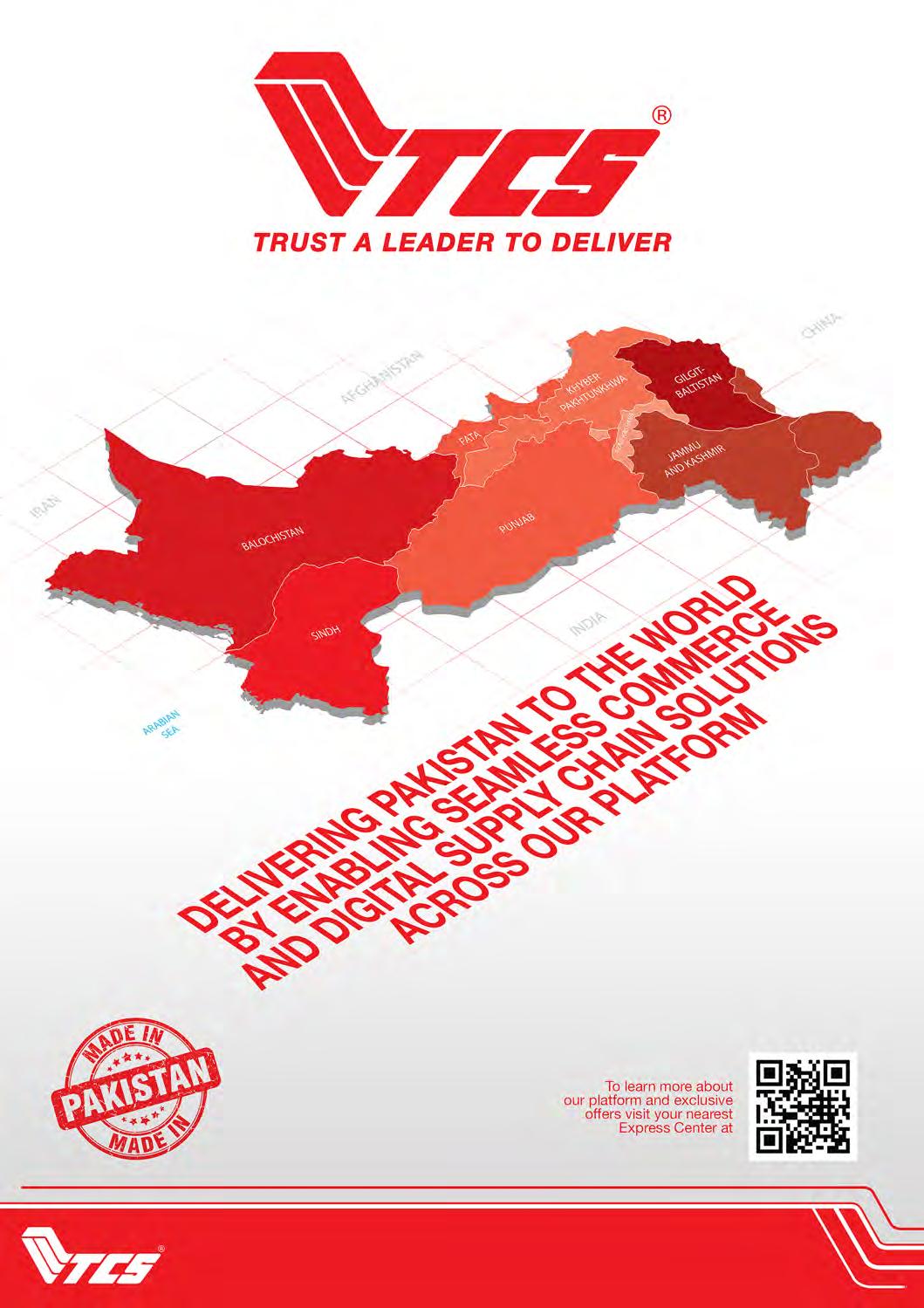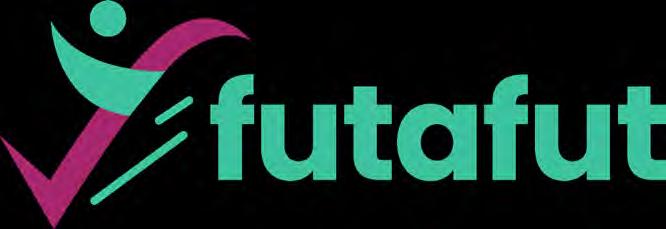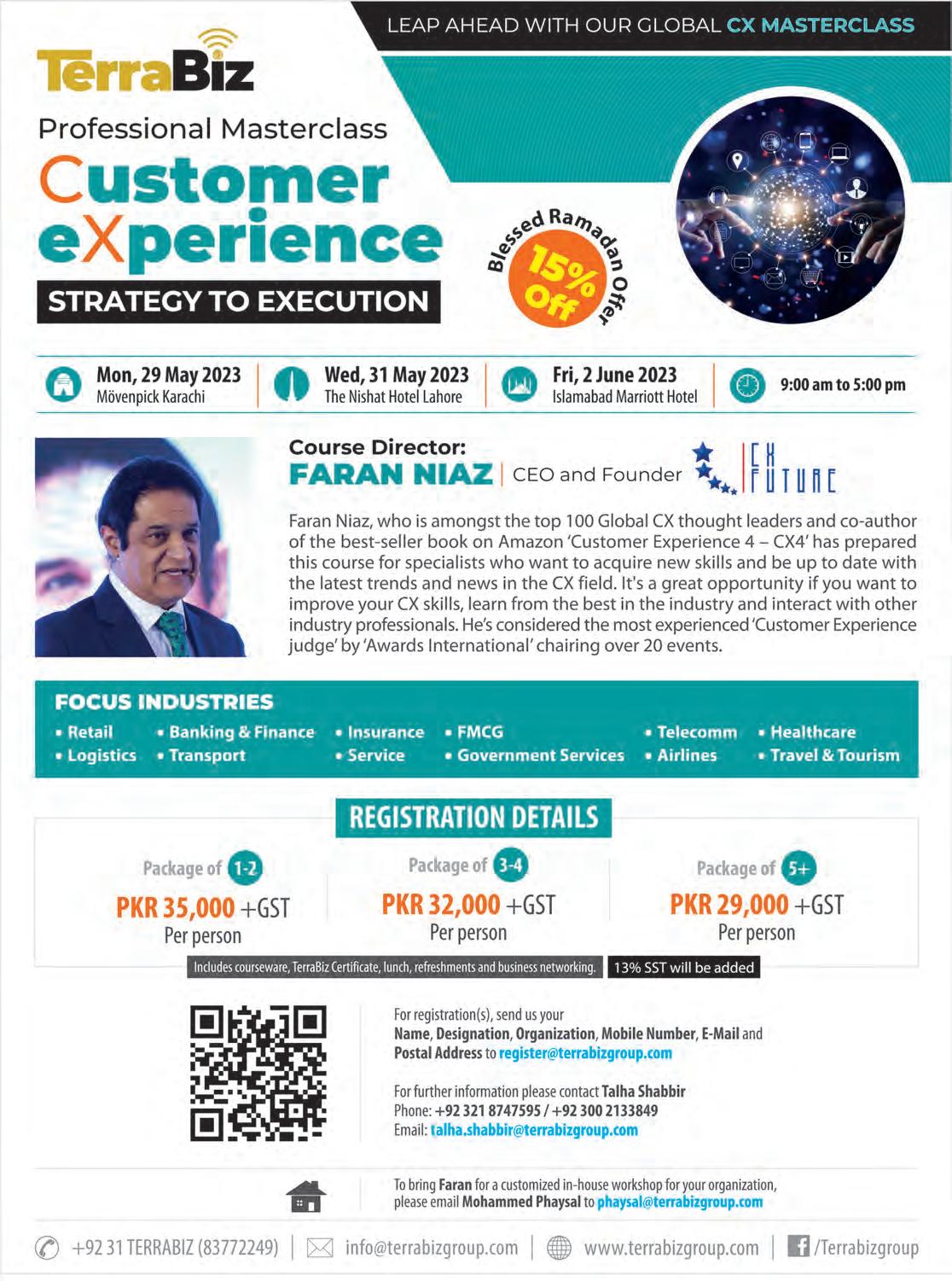
7 minute read
Pakistan’s latest fintech gamble
There is hope still for Pakistan’s FinTech industry
By Nisma Riaz
Advertisement
There’s a new fintech claimant in town, and it has a single-track focus: to make carrying and managing cash as easy as possible. An online digital marketplace pitching themselves to micro, small and medium sized enterprises (MSMEs), Fatafut wants to make life easier for everyone from retailers and restaurants to home-based and women-owned businesses. Essentially, it functions as a shopping app, offering B2B2C services to promote a digital and documented economic culture in Pakistan.
“Futafut fosters a culture of digitised transactions by supporting digital payments on its platform, freeing the customer from the hassle of carrying and managing cash. With our verified riders, we provide a level of trust to our customers that is unparalleled,” says the company’s Co-Founder & CEO Imad Uddin Chishti. But in a saturated market and in the current inflationary environment, is it a good idea?
Why Fatafut and why now?
Pakistan’s digital market ecosystem has been steadily growing, with several new players entering the space over the last few years. This has not only resulted in greater competition for existing digital retailers and markets but also reduced the share of the pie each player can grab.
So, what explains Futafut’s need to enter an already saturated market, especially during such inflationary times?
According to the Pakistan Bureau of Statistics (PBS), CPI inflation General increased to 27.6% on a year-on-year basis in Jan 2023 compared to an increase of 24.5% in the previous month and 13.0% in Jan 2022. On a month-onmonth basis, it increased to 2.9% in Jan 2023 compared to an increase of 0.5% in the previous month and an increase of 0.4% in Jan 2022.
Financial Technology
When the country is experiencing one of the highest calculated rates of inflation in its almost eight decades of existence, a fair question to ask would be: does such skyrocketing inflation not depress consumer spending?
However, this does not negate the tough competition between digital marketplace applications and websites. How, then, does Futafut set itself apart from others?

Firstly, it is the decades of experience working with large consulting firms, banks, holding companies, telecoms, and Fintechs that Chishti brings to the table. As the founding member and project manager for the launch of Easypaisa in Pakistan, as well as being one of the founding members and project manager for Tameer Microfinance Bank, Chishsti has become somewhat of an expert in managing money through tech.
Futafut does not only provide grocery services or food delivery, like other similar apps but has a wide portfolio of services. “We have an online retail store and food delivery service, yes, but that is not all. We offer delivery services, like Bykea, as well as connecting remittance senders to their families in Pakistan, making the money transferring and receiving process easier, smoother, and hassle-free.”
They have three separate apps called Futafut Premium, Rider, and Retailer. The names make it pretty self-explanatory what services they offer, but what is the reasoning? “The role each service plays is quite different. It can be confusing for users to navigate through the options, especially when they are so unrelated,” claims Chishti. “Apart from the services not being linked, it is also a technical nightmare to manage all three together in one app, when each separate service also has several categories within them. The traffic on the app alone would make it extremely slow for the customer and cause problems at the backend, as well.
Moreover, Futafut wants to create synergies and partnerships with FMCGs, banks, retailers and others to assist with their services, as well as for data sharing that helps these entities conduct more accurate market research.
A strictly digital payment model
Most B2B marketplaces offer a combination of payment methods, including both virtual and physical transactions, such as online payments, as well as cash on delivery. Meanwhile, Futafut has a strictly digital payment model.
Why?
“It’s our strategic and business decision to only support digital payment methods, in order to promote a culture of digitisation in Pakistan and to free customers from the hassle of carrying and managing cash,” explains Chishti. However, there are several modes of online transactions that customers can use. “Our customers can pay for their purchases using various digital payment options, such as credit/debit cards, mobile wallets, and online banking. This makes the payment process convenient and secure for our customers.”
Using cash has increasingly become a hassle, not only in terms of managing physical currency, but also for keeping track of and documenting when and where the money is coming. Digital transactions enable stakeholders in circumventing security issues that come with cash payments.
“Cash on delivery (COD) is the dominant mode of transaction for most e-commerce markets that does not come without its challenges.” Chishti said. He explained how the transactional costs and risks, such as scamming and fraud, along with long delays in payments to vendors and other parties involved with cash payments is a larger issue that Futafut aims to address.
So, Futafut essentially aims to solve cash flow issues for many businesses, making transactions quicker, safer and avoiding delays that are likely to happen with cash payments. “MSMEs get equal benefits from digital payments. Financial reconciliation and settlements are very cumbersome and tedious tasks when you use Cash on Delivery. Most merchants receive inflows of cash once or twice a month at most but with digital payments, there is no such limitation. It also allows us to credit score the merchants and offer digital loans for the purchase of inventory.”
“Moreover, we have a maximum of three to four day payment schedule to our retailers and we are working on mechanics to bring it down to T1 (payments completed within one day).” An industry source told Profit that retailers receive payments after 10 or more days because it goes from the riders, to the closed hub, from there to the bank, then the app’s office or station, which is a long reconciliation chain having several delays. Daraz takes over 20-25 days to pay their retailers and vendors, inhibiting them from reinvesting that money for almost a month.”
Even though this strategy sets them apart from their competitors, they lose out on a considerable market share by limiting themselves to digital payments.
Chishti defends this by explaining why consumers would opt for the Futafut Prime app over competitors. He elaborated upon a few of these by disclosing how, “We (Futafut) provide a financially secure platform, which is important for customers, who value transparency and security when making transactions. We believe that cash is the enemy of digitization, hence our app only supports digital payment methods, ensuring a secure payment process.”
“Yes, we will lose out on customers, however, the ones we have will be satisfied and loyal due to the trust we build at Futafut. This satisfaction and the word of mouth will do the rest.”
Futafut also claims to tackle other issues and address gaps in the market, relating to ethical problems by introducing a digital-only transaction mode. “The value chain of COD is so long and it involves several stakeholders, like the retailer, rider and customer. This slows down not just money transferring, but also makes crisis management and communication difficult.”
“Customers, after getting scammed so often, have now realised that with COD they have an upper-hand. Futafut focuses on creating a relationship of trust with the customer through proactive communication, quick reimbursement, and return payments in case of a mishap or even unsatisfactory quality of the delivered problem, something that other players in the market do not offer.”
This was confirmed by an industry source, who revealed that apps like Foodpanda and Daraz do not reimburse money but offer points on the app, which is essentially a way of trapping the customer. “People get reimbursed in the form of Panda Points or it goes to their Daraz Wallet. Daraz sends back your money in the wallet, even when you don’t have one, so they can force you to activate it. So, people cannot use that money anywhere else but only on the app in question.”
Chishti also mentioned that Futafut’s digital payment strategy helps them keep their sales commissions low, thereby extending better prices to both their customers and retailers. In comparison, Foodpanda charges a 26% sales commission on average and it can go up to 45-50% at times, which according to Chishti makes the whole endeavour counterproductive.
Do competitors perceive Futafut as a real threat?
Well, not really, no.
Profit asked Hammad Bawany, Co-Founder and CPO of Krave Mart, whether the growing competition in the digital market space concerns them. ‘No, we are essentially only directly competing for market share with two other companies: Foodpanda and Cheetay. However, we are doing quite well and have experienced steady growth. Yes, the market is getting more saturated, however it is also a good market with a lot of potential and despite the inflation, the performance is not that bad.”
When asked about the digital payment method of Futafut and their insight into the strictly digital payment strategy of the new company, Bawany said, ‘We also offer digital payments but cannot have a strictly digital model. We cater to all kinds of customers, so those without a banking app or a credit or debit card can also avail of our services. So, yes, this Futafut app might be doing something good, but it doesn’t align with our business model and complete target audience.``
Bawany also mentioned how cash handling comes with several challenges, but digital payment has issues of its own. “Yes, it saves you from cash handling and monitoring the long value chain to track money, but credit card payments mean hurting our margins by over 3%, apart from the on-boarding charges, so digital payment doesn’t come without its own set of drawbacks.”
Communication is an important pillar of any business strategy, and Futafut combats any problems in that regard through a proactive and hands-on approach. They have a customer support team available round the clock to assist with any queries or concerns.
“We take a personalised approach to customer service, treating each customer with care and respect. Our commitment to providing an amazing customer experience includes a streamlined refund process made possible by our digital payment system. Since we only support digital payment methods on our app, refunds can be processed swiftly, providing a quick and hassle-free experience for our customers,” disclosed Chishti to Profit.
According to Futafut, building trust is essential to the success of their business, and they claim to understand this quite well. “We take several steps to ensure that our customers feel secure and confident when using our app. One of the ways we tackle the issue of trust is through our innovative product portfolio, which allows us to use transparent and robust digital payments for both consumers and retailers. By using digital payments, we provide a secure and seamless payment process that eliminates the need for physical cash handling and reduces the risk of fraud or theft.”
As Pakistan joins the world in its transition to a completely digital transaction system, Futafut takes on the mantle of digitising finance and payments for Pakistani businesses. n







